Dr. Tony Miksa speaks at the Student Open Forum in CoLab, Wednesday, Feb. 19. Photo by Yan Luciano Arantes Dornelos Souza.
By Baptiste Raffin
JCCC held student forums with the three presidential finalists candidates on Feb. 17, 19 and 21. Each day, the finalists faced JCCC students and answered a series of pre-prepared questions. Below are some of the topics they touched on.
What do you see as the biggest challenge facing JCCC in the next five years, and how do you plan to address it?
Dr. Feleccia Moore-Davis: “We are expecting in the community college lane, some decline in enrollment among students and high school graduates being one of those, and I think one of the things we’ll need to do is we’ll need to pivot. We’ll need to be able to give students what they need when they need it and be very responsive; and one of the things JCCC is known for is being responsive. I think this community that they have built for you right here is one that shows that they are being responsive to students’ needs. So, I think that one of the things we’ll continue to do [is] the exceptional service that we have been known for, for our students. But I think that there is going to be a shift as we go forward with [the] population of students that we have expected for many years, and our programs will need to be more nimble, so that we can give students what they need in a more condensed manner, so that they can get into the workforce.”
Dr. Tony Miksa: “I think one of the biggest challenges that we’re gonna face at JCCC, and I think all community colleges are gonna face this, is the changing political demographic factor. It doesn’t matter what side of the fence you’re on here, I’m not here to make a statement about where you’re at. But politics is weaving its way into our lives in a way that’s different. So I think that that’s a big thing that we’ve got to really worry about and we’ve got to remember. And from a president’s point of view, no matter what happens, it’s our job to educate you guys as students, it’s our job to be there for you, it’s our job to make sure that you guys have the resources that you need, to make sure that you can get across the finish line. We have orientation at the college I’m at in Tennessee, and every time I get a chance at orientation, I walk out there and say, my goal for you is to walk across that stage and I shake your hand in two years. And it might not happen, but that’s what I’m looking forward to doing.
The next one out there is, we need to know what it is really that you guys need to be successful, because you guys are in a really difficult changing time right now. Life is not necessarily easy for you everyday. The mental health issue is a really big deal and I think that as a college we’ve gotta make sure that we continue to support that, make sure that you guys have what you need to be successful.
The last one is the idea that you’ve gotta let us know what you need to be successful. If you can’t get to the classes that you need, it’s our job to make sure that those are scheduled at the time that you can get them. If they are not delivered in a way that works for you, it’s our job to make sure that they are delivered in a way that works for you. If you need certain student services at eight o’clock on Wednesday night, it’s our job to make sure that you get them on Wednesday night at eight o’clock.”
Dr. Curt Oldfield: “For me, I think one of the things that that I’m always concerned about being a community college graduate myself and being involved in student governments and student leadership, I was a part of the shared governance when I was a student, I always think about student engagement, and so I always think about how do we help all of you as students feel the strongest connection possible to Johnson County Community College? So from a student perspective, that challenge for us, having the resources to support your needs and interests as a student. That engagement can be inside the classroom, it can be outside the classroom, it can be even once you graduate and move on into your career. We want to stay connected with you. We want to stay engaged with you and help you achieve your career goals that you have, or aspirations, because not only is it our responsibility to help you get to the best stage, but to be a resource that you can come back to if you need something additional. Careers are ever changing, and I talk to students a lot about being a lifelong learner. I view myself as being a lifelong learner. And the importance of understanding that Johnson County Community College is going to be here for you in all the stages of your life as you move forward. So it’s important for us as a leadership team to hear the voices of the students about what you need in order to be engaged and how we can help you, not only now, [but] five, ten, fifteen years into the future, so you always look at Johnson County Community College as a resource for your learning needs.”
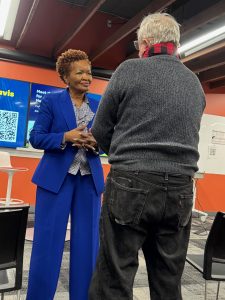
What is your vision for strengthening academic programs and ensuring JCCC students are well-prepared for the workforce or transfer to four-year universities?
Dr. Feleccia Moore-Davis: “Our two main goals here in the community college is you are in a career technical program, that you can leave here and get a job. And based on the research, I’ve seen 88% of students do. And then there is successful transfer. Now that is sometimes a little complicated, but JCCC is making significant efforts to expand that system-wide transfer initiative by the Kansas Board of Regents’ so that it will take your sixty hours because that’s the important thing. A student shouldn’t leave here with a question mark whether what they took here is going to transfer. And it also doesn’t help us because you don’t finish your degree here, so if you don’t finish your degree, that also impacts your future as well, because you need to get your associate’s degree, but we also need a system where that associates degree is recognized at universities, so that you don’t have to repeat these classes when you get there, because that is counterproductive. So we want to make sure that we have a seamless transfer opportunity for our students. And something we might also look at sometime in the future is whether our university partners could be here on the weekend, offering classes on the weekend, so that we could have a true two plus two type of program here on the campus.”
Dr. Tony Miksa: “For that, what I always like to think about goes back to working with employers. If we’re thinking about students that are coming to school here, I think community colleges have two or three major roles. One of them is to get their students into the workforce. The other is to get them to transfer to a four-year institution. And the last, [is] to get students the coursework they need to be ready. In terms of the workforce, that’s being out there talking about the benefits of the college and talking about how great our students are. When you’re out there talking with the workforce, finding a little bit about the equipment that they use, what it is exactly that they need in terms of their employees, and then bringing that back to the college and talking with our Vice-President of academic affairs, letting them know ‘Hey, this is what business and industry are saying to me. What is it that we can do?’. I think it’s also the idea of highlighting our students, when they’re out there in business and industry, talking about you as students, highlighting you, keeping you on the front page of our publication so that they see ‘Look at what our students are doing and they’re creating the next cure for cancer’, whatever it might be. I think in terms of transfer, it’s that same sort of thing, we gotta work with the schools that we most typically go to, and make sure that we have a clear pathway for you as students to get to those schools, whatever it might be. So, working with those schools to make sure that our classes are transferred seamlessly to that four-year institution. I want to make sure that we have all the equipment that we need and then[connect] with those schools finding out what we’ve got to do to make sure that you get what you need to be successful when you get there.”
Dr. Curt Oldfield: “I think a very consistent program review process. Johnson County has done a good job of continually looking at programs, both transfer and career programs, and analyzing those programs, so I think hearing that feedback from students is really important. I would like to gather as much information as possible once you’re in the career, what do you wish we would have taught you? What do you wish you would have learned while you were here that you now need in the career that you’re at? Not only informs what we’re doing within our credit programs, but it also informs our workforce development and continuing education because that’s an opportunity for us to have you back on campus and to help you with that lifelong learning. But I think the other part of that is transfer. Studying how well our students do, who leave Johnson County Community College, and go on to a public or private baccalaureate granting institution, understanding your success at those institutions,understanding are you doing as well or better than other community college graduates who transfer to those institutions? Are you doing as well or better than the students who started their four-year journey at that institution? And if there are gaps where our students are not performing as well, finding ways to address those barriers that prevent those students from achieving as well or better than our other peer community colleges, and the students who start at that four-year institution. I think there’s ways we can do that, but feedback from our students is the greatest. We have to prepare those students to be successful at the next level. That’s all of our responsibility to make sure we’re preparing you for the workforce and for that baccalaureate degree, and then into your career at the next stage.”
How do you plan to keep tuition affordable and expand access to scholarships and financial aid?
Dr. Feleccia Moore-Davis: “You have an excellent foundation, I don’t know that you know about the foundation. When I looked at the foundation, there are several scholarships that go unasked for and we want to decrease that rate. So I want to make sure that you know all about the scholarships, because sometimes you think about scholarships and ‘Am I gonna have to write an essay?’, ‘Am I gonna have to do all these things?’, and some no, we just need your name and your major. So I just need you to make sure that when that window opens, that you ask for the scholarship, because some scholarships are there for you and they are there just for the asking. We want to strengthen that and strengthen the student awareness around scholarships. We have an excellent foundation, and I believe what I read was 1.6 million that we have given away since the college’s inception, and we give away thousands every year to help students, and we want to continue to do that. […] And how we’ll keep tuition low is that we will always make that a priority because when it comes to physical management, if us raising tuition is going to alleviate a student not being able to come to the college, we want to look for another avenue to do that. So tuition being low would be a priority for me, but staying low, because it is already low, even in this changing environment is something that we have to make as our priority.”
Dr. Tony Miksa: “Well, if you talk about keeping tuition affordable, you gotta first talk about your budget, and so I am a big proponent of asking for people’s hopes and dreams in the budget. I want to know what everybody wants. I wanted to know that you need a Tesla for the automotive program. I want to know that you need [a] brand new building for a stage. Whatever, I don’t know, maybe I shouldn’t have picked Tesla, like a specific car, whatever it is. But I want to know all those things that you want within your budget. But then after that it’s the idea [that] we’ve got to prioritize those things. There are things that you have to do, right? You have to pay salaries, you have to pay benefits, you have to turn on the lights, you’ve got to turn on the heater, I mean, those are all things that are in there. But usually, in every college budget there’s a space in there where there’s some money that gives you the ability to do something, and do some creative and fun things, and we can prioritize those creative and fun things, but yet also be smart with the dollars that we use so that we’re not having to raise tuition. You guys are very lucky, if I saw correctly JCCC has got the lowest, if not one of the lowest tuition rates in the state, and that is awesome. I think the second part behind that is that because you get a lot of support from your community, this community values education and you should never take that for granted because not every community values education. What it appears from my vantage point is that Johnson County or the district that you serve, how much they appreciate education, it’s really important. So I think the other part behind that is the great work that our students are doing, and that the dollars that you’re investing in the students that are taking classes really is worth it, and there’s a payoff for that in the end, and that will be to make our community better. And then the last thing I would say with scholarships, it’d be my job to work with the foundation to fundraise, fundraise, fundraise. We have our college in Tennessee, we have the largest foundation in Tennessee. Although we’re competing, another foundation said they’d beat us. I don’t know how. But we give out a good number of scholarships each year for us to give out over half a million dollars of scholarship each year to our students, so that’s really good. I want to see what you do here and continue that and try to grow that and make that better. Again, it’s my job out there to make connections with people and grow those scholarship opportunities as well too.”
Dr. Curt Oldfield: “For me, part of my role is to tell your story as students out with potential donors to the foundation about that need, and for me to understand the needs for our scholarships for offsetting costs for you to attend school. That’s my role, to raise scholarship funds and tell your story, the struggles that you face. So, back to the first question about keeping tuition affordable. Part of what we have to do as a college leadership team working with the Board of Trustees, is identify to make sure that every expense that we have is essential for the operations of the college. Because, when you look at the revenue stream for Johnson County Community College, 60-ish percent of the revenue comes from property taxpayers, the next highest contributor all of you are students, in tuition and fees. So we owe it to you to make sure we’re offering everything as efficiently as possible to keep that tuition as low as possible for you as students. It also involves me being involved with the legislators in Topeka, and help[ing] them understand that state contribution impacts tuition. You only have three revenue sources, property tax, student tuition, and state contribution from the grants from the state of Kansas. So it’s important for me to share the stories of why their investment in Johnson County Community College makes a difference in how if they don’t invest, there’s a direct correlation to tuition increasing for the students.”
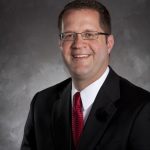
How will you address challenges such as declining enrollment, budget constraints, or potential policy changes that affect community colleges?
Dr. Feleccia Moore-Davis: “We’re all really struggling with that because for one, we are seeing a lot of changes coming from the federal government right now that could impact how we do business and could also impact our students, so we are staying vigilant in attempting to understand all of the changes that are coming forward. As far as other things that we need to be diligent about is recognizing that we are in the midst of demographic changes. We are seeing fewer men come to college, we are seeing fewer high school graduates choosing college, and we also have a greater perception that higher-ed is not worth anymore. But at the same time, what I tell people, you have to deaggregate that data, because people do see the value of community colleges, they don’t see necessarily the value of larger colleges that might be charging you $1,500 per credit hour versus us charging you $120 for credit hour. So, we want to keep tuition as low as possible. But we want to stay abreast of things that are going to impact us so that it doesn’t impact you in a negative way. So, the closer we can stay to the information, then we can pivot so that you don’t have to make adjustments. If the college has to make adjustments that will be for us to do, we will keep you informed of any adjustments that may be affecting you, but we will stay true to our strategic plan and our mission, which is to strengthen our community and transform lives, and we do that through education, and we don’t want anything to hinder that.”
Dr. Tony Miksa: “Declining enrollment is a challenge all over the country, right? I know you guys were up 5%. We have to shift our mindset, and I don’t know where JCCC’s mindset is, but the mindset has to shift from this idea that we are an admissions-based college or admissions-focused college, to we are a recruit[ing] college. So you’ve got to be out there. And so our focus in our budget this year (in Tennessee) is going to be around that idea of hiring recruiters, and going out and actually really managing territories like you do in a private school a lot of times. So that’s one thing that we’re really going to focus on from that perspective of enrollment. Another thing is we’ve got to capitalize on our dual enrollment students, because numbers are going up. What we see in our dual enrollment students is that they come to the college, they matriculate at a higher rate than a student that doesn’t [have] any dual enrollment classes. So we need to be on it. We need to be connected with those students. We need to have a way so that the students know that if you get admitted as a dual enrollment student, you’re automatically admitted as a regular student to some degree. I’m not exactly sure how that works, as the president I don’t have to know all the details, I have to set the vision and get people there and go down that path. So we’re working on that from that perspective to get those students in. I think we also can take a look at clubs, organizations and resources that might bring students to campus. I think that that’s another thing that we can do. It comes to enrollment. I think with budget constraints, this has always been my philosophy and if I end up here, this would be my fifth institution in my career as I just kind of built up from a faculty member to a dean, to a vice-president, to a president. But each institution, what I’ve always worked on, is an idea of giving your hopes and dreams, prioritizing those hopes and dreams, knowing what you have to spend your dollars on, and then bouncing that all out. And usually in my many years in higher education, we’ve always been able to come out and meet the needs of our students yet not overdo our budgets and cost tuition to go up or not be able turn lights and do the fun things we need to do. Policy. Students don’t really like to talk policy. That’s not really fun stuff as much, but I think what we know is things are gonna change. We know things are coming down the pipeline, there’s a lot of crazy things happening out there in terms of politics. I think I get up every morning and I hear while we’re cutting this department or we’re gonna to do this, we’re gonna to do that. The question is, will those things really hold and will they continue to happen? I don’t know, maybe they will, maybe they won’t. And again, I’m not making any statement on is it ‘s right or wrong to do that, you know whether it’s right or wrong doesn’t really matter, it’s gonna affect us either way. But here’s what we got to do. Back to that first thing I said in the beginning, our job is to take care of you as students and get you across that finish line so you can be out there and you can be those leaders, those people that get elected, and then you are able to make the statements or change the policies or do what you want to do, that’s our goal. But coming back to all that, it’s our job to kind of shield you from those things and just make sure you’re getting the education that you need and be flexible. it’s our job to go ‘OK, how are we going to figure this out? What are we gonna do? We’re going to work our way through it.’.”
Dr. Curt Oldfield: “It’s really an interesting time to be a leader in community college because at what time in community college’s history have we had the spotlight on us as being the solution to many of the problems that our regions face across the country? We truly are being looked at from a federal and a state perspective about how we can be problem solvers for some of the challenges that are being faced. So first, when we think about our high school connections for recruitment. One of the things that I’ve shared in my open forum for [a] solution is to really create a very clear road map so that when you’re graduating high school, you can see the course path work that you need to take at Johnson County. You see the course, how that correlates to the coursework at the baccalaureate degree institution you’re going to and you know for certain that the classes you take with Johnson County are gonna to transfer on to that next step. And I think that’s really important because that builds confidence and with that confidence comes more people saying ‘I want to enroll in Johnson County Community College because it’s more affordable to attend school, it’s right here in my community where I’m at, and then I don’t have as much student loan when I transfer on to my next institution.’ So when we think about trillions of dollars across the country in student loan debt, we’re having more and more students think about ‘How do I do this more economically [efficiently] and still have the quality of education in order to be competitive in the career field in which I’m studying?’. So that is an important part of the recruitment side of that question. But I think it’s also important to think about the retention. So once all of you are here as students, how do we keep you here as students? How do we keep you [going] so you walk across that stage and we get to hand you that diploma? I think that’s the ultimate goal is, we’re oftentimes thinking about students coming in, we don’t talk enough about students graduating and how do we raise that percentage of students achieving those degrees or certificates, because that’s where our success is. It’s not only getting you here, but helping you complete. Budget constraints are certainly something we need to keep an eye [on]. I think all of us in higher-ed across the country are going to be looking at some leaner times, moving through the future. And so I think it’s important that we think about what we have control over and how we utilize the resources we have to the best extent possible. So back to the original question about sustainability, financial sustainability is just as important. So how do we use those resources to maximize the results in which we are looking at? Policy changes is the last part of that question, and I think my role as president is to understand the needs from students, from faculty, staff and from the community, and to then ask the question of why or why not or are we doing things or why are we not doing things that impact the operations within the college. And so my role is to get an understanding and then use the data that we collect to make a good decision to set the future direction of the college. There’s no policy that can’t be undone, and so there’s an opportunity for us to take risks, [and] to be entrepreneurial in our thinking. But there are opportunities for us to understand that before our policy is made a policy, there’s been adequate input into decisions before they become a Board of Trustees action item and become part of the operations of the college.”
The Board of Trustees will select the candidate of choice in the next few weeks, and they will begin no later than July 1, 2025.



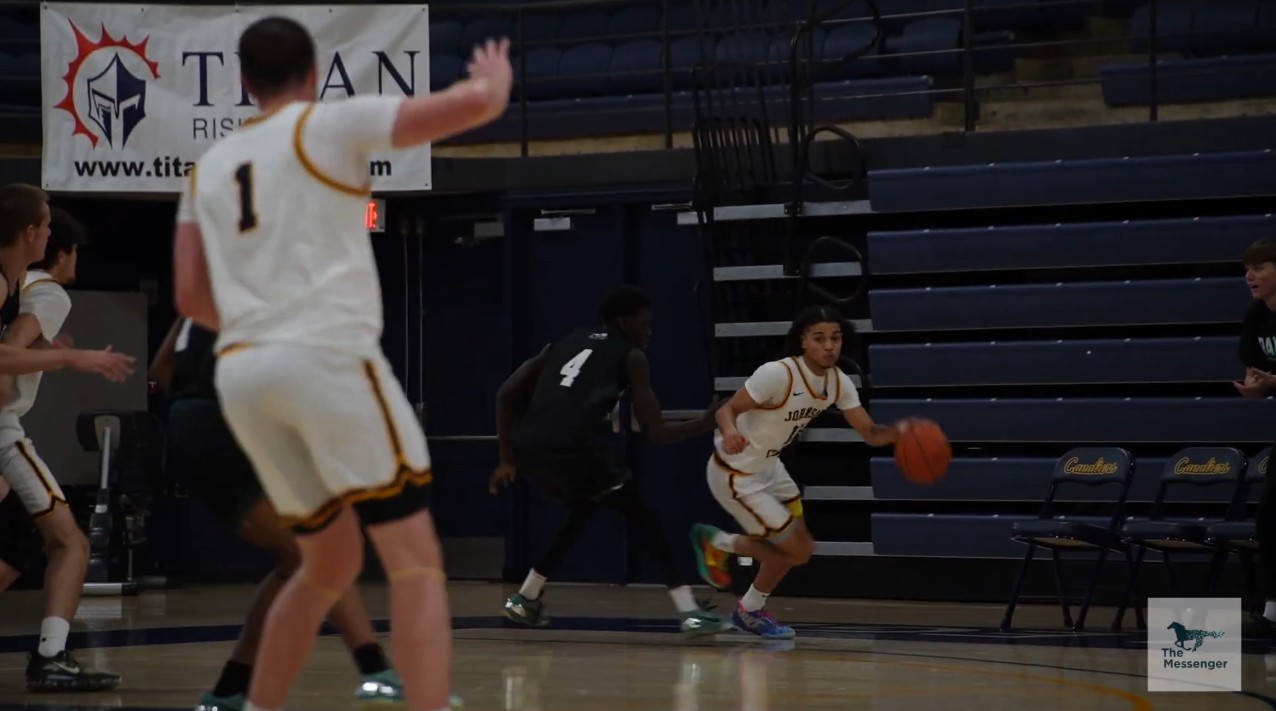

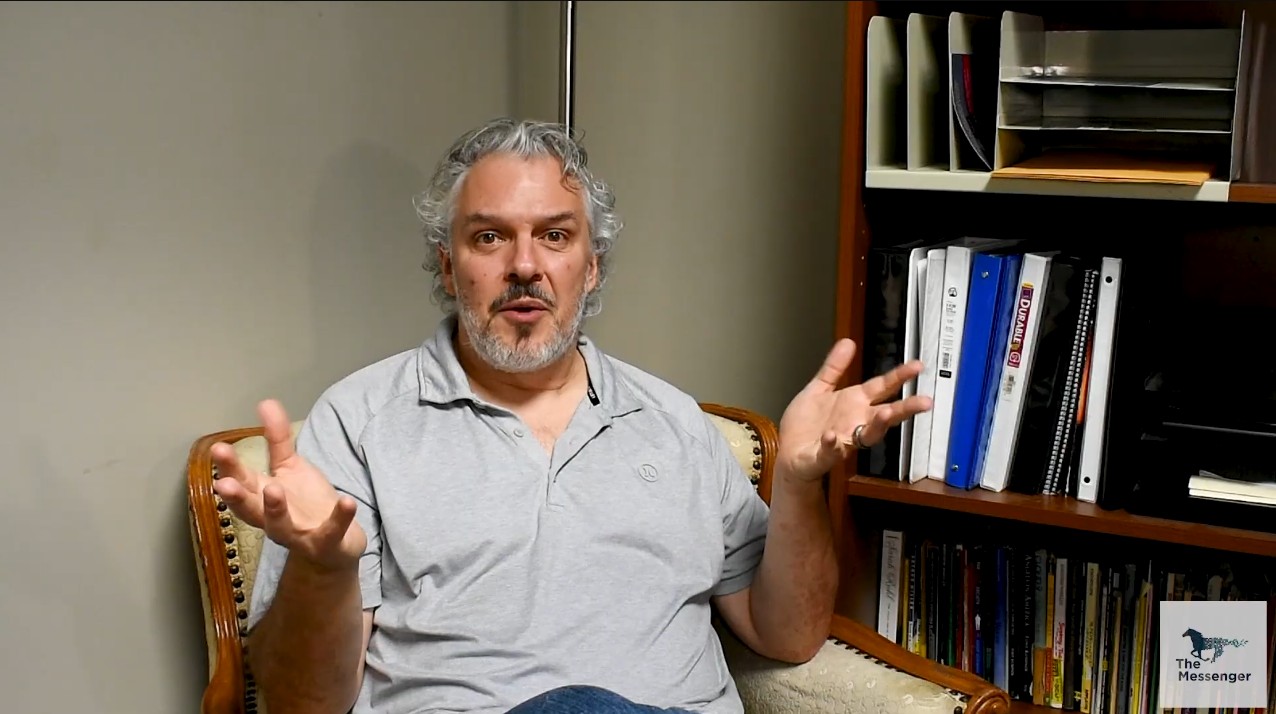


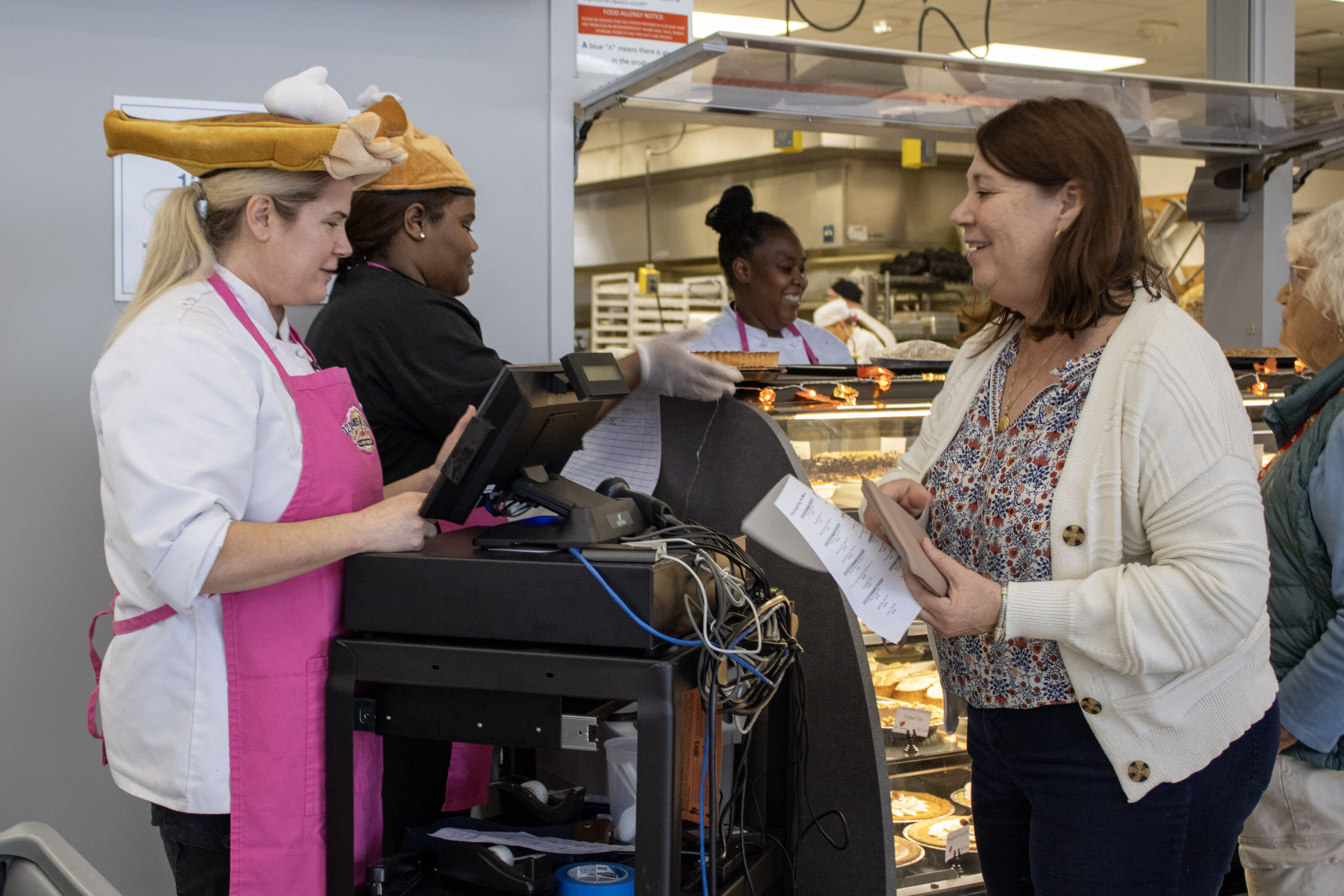
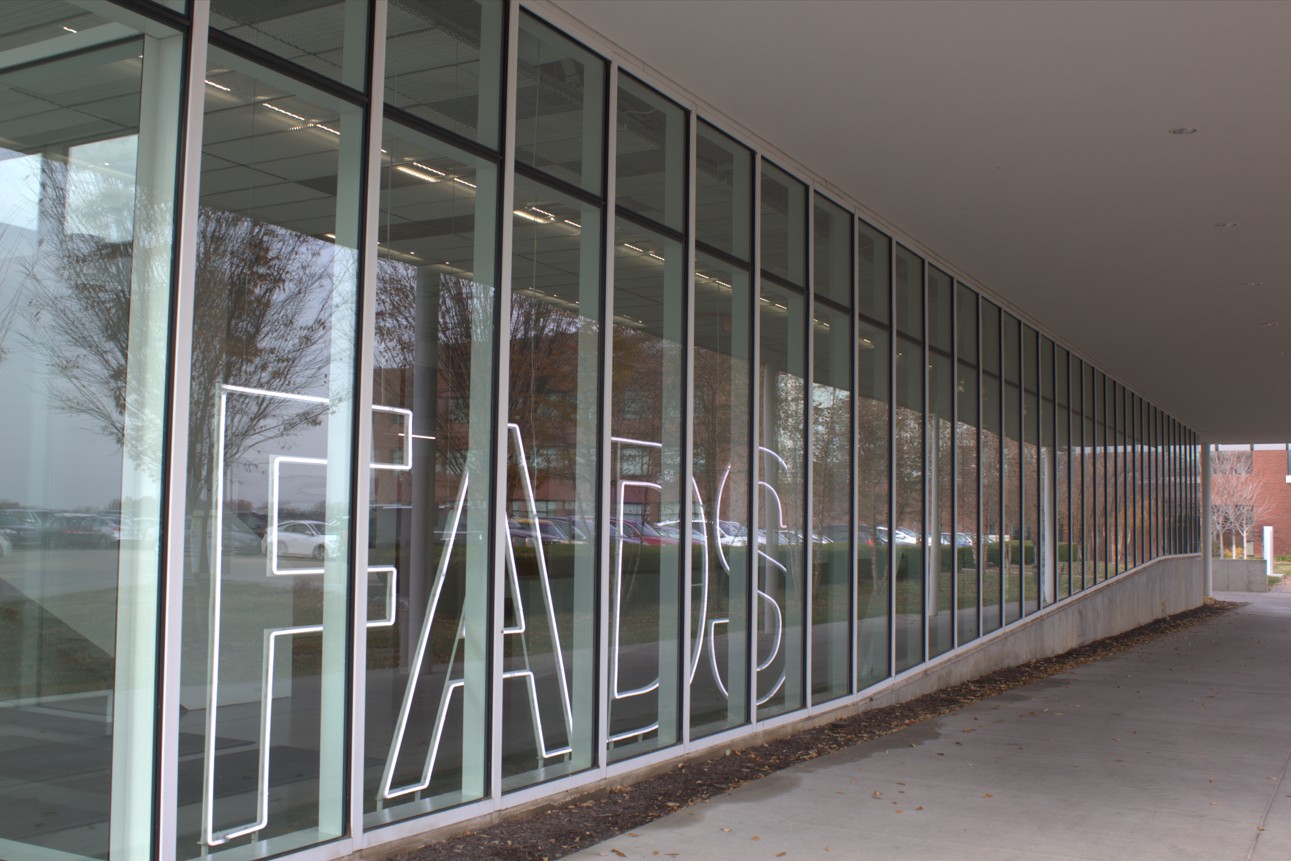


Leave a Reply